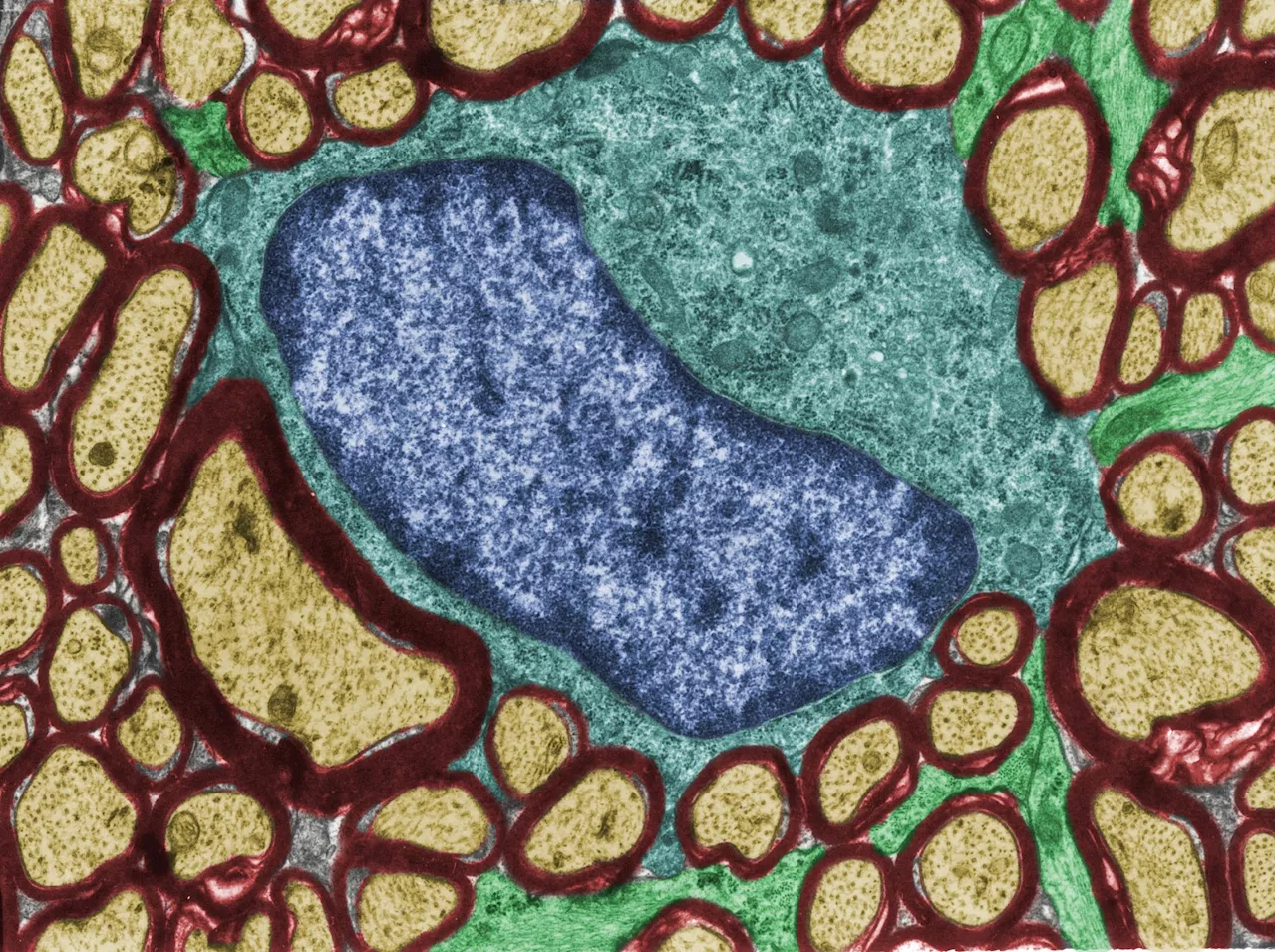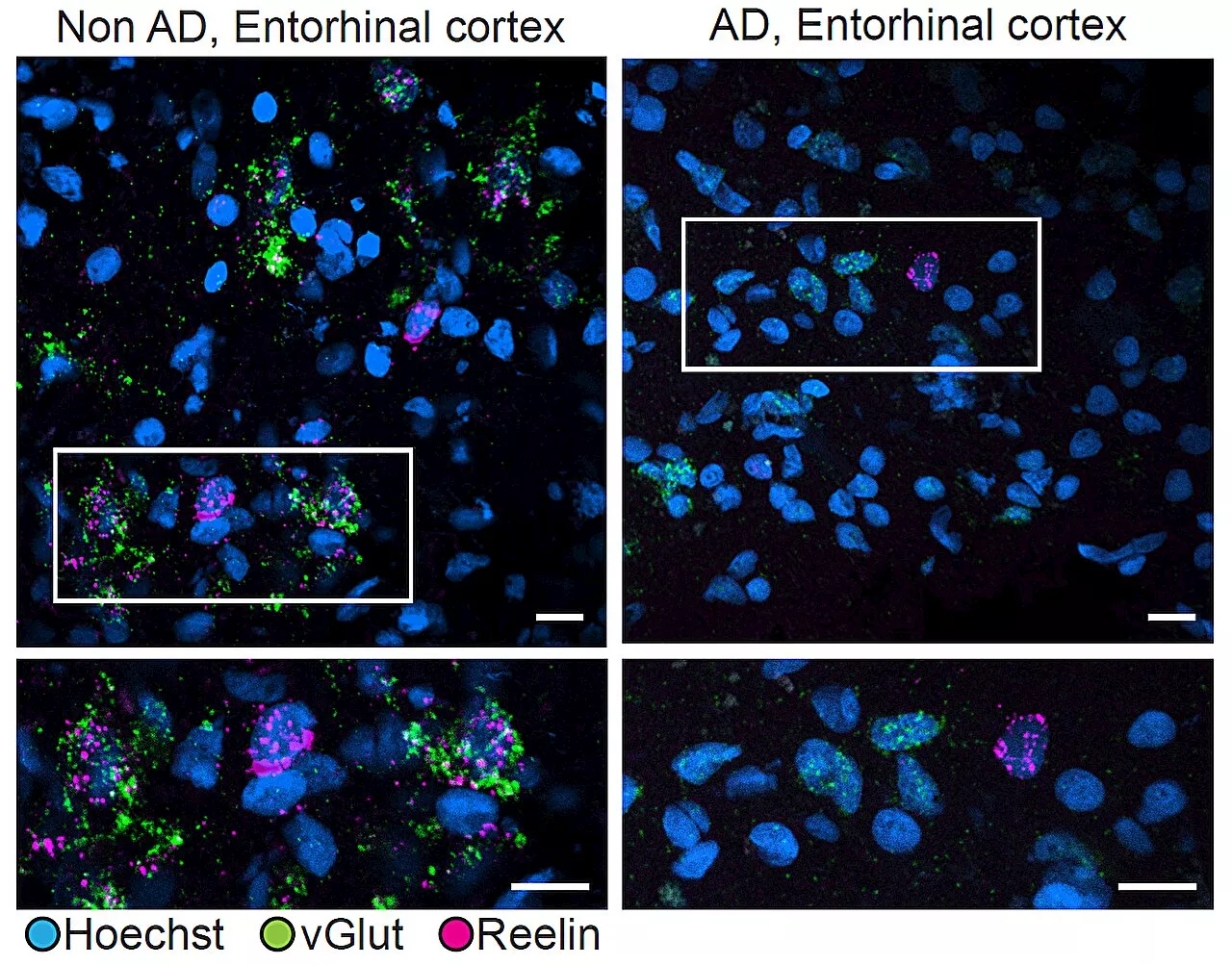The risk of being diagnosed with Alzheimer's disease is about a third higher for seniors who have untreated high blood pressure, new research suggests.
READ MORE: The five vital health numbersA condition suffered by nearly half of all Americans raises their risk of Alzheimer's disease, a study suggests.
It causes damage to blood vessels, restricting blood flow and oxygen to the brain and depriving it of its ability to clear out toxic protein buildup which is a hallmark of Alzheimer’s. Researchers at the University of New South Wales in Australia combined data from 14 unique studies encompassing 31,250 people from a range of countries, including Australia, Brazil, China, France, Germany, Greece, Italy, Japan, Korea, Nigeria, Republic of Congo, Spain, Sweden, and the United States.
They found 9 percent had untreated high blood pressure, 51 percent were taking blood pressure medications, 36 percent did not have high blood pressure, and 4 percent were noted as uncertain. ‘These results suggest that treating high blood pressure as a person ages continues to be a crucial factor in reducing their risk of Alzheimer’s disease.’
When a person’s blood pressure is consistently 130/80 mmHg or higher, a doctor will typically diagnose them with hypertension.
United States Latest News, United States Headlines
Similar News:You can also read news stories similar to this one that we have collected from other news sources.
 Nasal spray clears proteins linked to Alzheimer's, study findsScientists in America have developed a nasal spray that can remove proteins in the brain associated with Alzheimer's disease—at least, in mice.
Nasal spray clears proteins linked to Alzheimer's, study findsScientists in America have developed a nasal spray that can remove proteins in the brain associated with Alzheimer's disease—at least, in mice.
Read more »
 Study offers possible explanation for link between diabetes and Alzheimer'sPeople with type 2 diabetes are at increased risk of Alzheimer's disease and other adverse cognitive health issues.
Study offers possible explanation for link between diabetes and Alzheimer'sPeople with type 2 diabetes are at increased risk of Alzheimer's disease and other adverse cognitive health issues.
Read more »
 NIH awards $3.5M grant to study link between traumatic brain injury and Alzheimer'sA traumatic brain injury, or TBI, is caused by a contusion to the head that may result in injury to the brain.
NIH awards $3.5M grant to study link between traumatic brain injury and Alzheimer'sA traumatic brain injury, or TBI, is caused by a contusion to the head that may result in injury to the brain.
Read more »
 Study uncovers roles of certain brain cells in Alzheimer's plaque formationA study in Nature Neuroscience found that both neurons and oligodendrocytes contribute to amyloid-β plaque burden in Alzheimer's disease, highlighting new therapeutic targets.
Study uncovers roles of certain brain cells in Alzheimer's plaque formationA study in Nature Neuroscience found that both neurons and oligodendrocytes contribute to amyloid-β plaque burden in Alzheimer's disease, highlighting new therapeutic targets.
Read more »
 Study uncovers how TREM2 R47H mutation affects Alzheimer's plaquesResearchers led by the University of California, Irvine have discovered how the TREM2 R47H genetic mutation causes certain brain areas to develop abnormal protein clumps, called beta-amyloid plaques, associated with late-onset Alzheimer's disease.
Study uncovers how TREM2 R47H mutation affects Alzheimer's plaquesResearchers led by the University of California, Irvine have discovered how the TREM2 R47H genetic mutation causes certain brain areas to develop abnormal protein clumps, called beta-amyloid plaques, associated with late-onset Alzheimer's disease.
Read more »
 Study across multiple brain regions discerns Alzheimer's vulnerability and resilience factorsAn MIT study published in Nature provides new evidence for how specific cells and circuits become vulnerable in Alzheimer's disease, and hones in on other factors that may help some people show resilience to cognitive decline, even amid clear signs of disease pathology.
Study across multiple brain regions discerns Alzheimer's vulnerability and resilience factorsAn MIT study published in Nature provides new evidence for how specific cells and circuits become vulnerable in Alzheimer's disease, and hones in on other factors that may help some people show resilience to cognitive decline, even amid clear signs of disease pathology.
Read more »
